This article was co-authored by David Nazarian, MD. Dr. David Nazarian is a board certified Internal Medicine Physician and the Owner of My Concierge MD, a medical practice in Beverly Hills California, specializing in concierge medicine, executive health and integrative medicine. Dr. Nazarian specializes in comprehensive physical examinations, IV Vitamin therapies, hormone replacement therapy, weight loss, platelet rich plasma therapies. He has over 16 years of medical training and facilitation and is a Diplomate of the American Board of Internal Medicine. He completed his B.S. in Psychology and Biology from the University of California, Los Angeles, his M.D. from the Sackler School of Medicine, and a residency at Huntington Memorial Hospital, an affiliate of the University of Southern California.
There are 11 references cited in this article, which can be found at the bottom of the page.
This article has been viewed 12,541 times.
It's easy to miss important nutrients if your diet is limited by time, finances, or habit. While nutritional supplements seem like a simple way to make your meals healthier, it's best to approach supplements with caution. Talk to your doctor before you add any supplements to your diet, especially if you are already taking medication. Whenever possible, opt for adding nutrient-rich food to your diet instead of taking a pill. Do not dose children with dietary supplements without first consulting with a pediatrician.
Steps
Compensating for Deficiencies with Dietary Supplements
-
1Consider taking supplements if you follow a vegan diet. Meat and dairy are straightforward sources of many important nutrients. While some vegans have access to a wide range of nutritious plant-based alternatives, others do not. If you can't get enough fresh produce and fortified food in your life, consider supplementing with the following:[1]
- Vitamin B-12
- Vitamin D
- Long-chain omega-3s - eicosapentaenoic acid (EPA) and docosahexaenoic acid (DHA)
- Iron
- Iodine
- Calcium
- Zinc
-
2Ingest Omega-3 if you never eat seafood. It's hard to get omega-3 fatty acids if you don't eat 2-3 servings of seafood a week. Omega-3s are important for heart health. Therefore, if you don't eat seafood and you are concerned for your heart health, talk to your doctor about adding an omega-3 supplement.[2]
- Ask about a supplement of around 200–300 mg a day.
Advertisement -
3Talk to your doctor before adding any supplements to your diet. Doctors will be able to tell you if you are taking too much of a supplement, and what you should watch out for. They will also be able to tell you if your supplements interfere with any of the medication you are taking.[3]
- For instance, taking antioxidant vitamins can interfere with chemotherapy. St. John's Wort can break down medicines like anti-depressants or birth control, making them less likely to work.
- Never swap a prescribed medication out for a supplement without first consulting your doctor.
- A supplement may claim to cure the condition you are taking medicine for, but it may only address certain causes. For instance, iodine will only help with a thyroid condition if the condition was caused by iodine deficiency.
- Your doctor can order a blood test to help determine what vitamins and nutrients you are deficient in so you know what you should be supplementing.[4]
-
4Take only the suggested serving of any supplement. Supplements may contain powerful ingredients. Taking too much of some supplements, or taking them in combination with medicine or with other supplements, can cause serious complications. Only take the prescribed amount of a supplement.[5]
- For instance, too much vitamin A can cause birth defects and can damage your liver and bones.
- Overdosing on iron can cause nausea, vomiting, and liver damage.
Including Important Nutrients in Your Diet
-
1Consume daily dairy or tofu for calcium. Drink milk, eat yogurt, and enjoy other dairy products as a part of your ordinary day. If you don't eat dairy, tofu and tofu products are also calcium-rich and dairy-free.[6]
- Sardines are an excellent source of calcium.
- Calcium-fortified products, like fortified orange juice, can also take care of your calcium needs.
- Aim for 1,000–1,200 mg of calcium a day, and don't exceed 2,000 mg.
-
2Eat foods rich in folate, especially if you tend toward anemia. Folate nourishes your blood and naturally occurs in many foods. Instead of taking a folic acid supplement, consider making folate-rich foods a normal part of your diet. You can get folic acid from spinach, lentils, and beef liver, among others.[7]
- Folic-acid fortified cereal is not difficult to find.
- Try to get 400 mcg a day, and don't exceed 1,000 mcg.
-
3Make sure you are eating plenty of iron, especially if you are a vegetarian. Meat such as turkey, chicken liver, and oysters contain the iron you need. For vegetarian options, legumes (especially soybeans) and iron-enriched cereal are advisable.[8]
- If you're a vegetarian, you will have to be more careful about absorbing iron, as your body stores less of the iron in plants. Eat iron-rich vegetables alongside foods rich in vitamin C.[9]
- Get 8 mg a day of iron, and don't ingest more than 45 mg.
-
4Get your omega-3 fatty acids from fish, nuts, and seeds. Eat fatty fish like salmon and sardines to get enough omega-3. Add flaxseed, walnuts, and soybeans to salads, smoothies, and grain bowls. You can also sprinkle ground flax in your drinks and soups, providing a mild nutty flavor and a lot of nutrients.[10]
- While supplements can provide you with some of your omega-3 needs, you can only get ALA long-chain omega-3 fatty acids from foods.
-
5Eat orange, red, and green veggies for vitamin A. Vitamin A comes in 2 forms, preformed and proto-vitamin, both of which are good for your vision and immune system. Sweet potatoes, pumpkin, carrots, cantaloupe, and tomatoes all give you vitamin A. Leafy greens, meat, and dairy do as well.[11]
- Animal products will provide you with more preformed vitamin A, while vegetables contain more provitamin A.
- Aim for about 700 mcg, and don't exceed 3,000 mcg.
-
6Find your vitamin B6 in protein. Eating salmon or chicken breast will provide you with vitamin B6. Chickpeas are a delicious source of vitamin B6, and can be eaten as beans or ground up into a tasty hummus.[12]
- Aim to get about 1.5 mg a day, and don't go over 3000 mg.
-
7Get vitamin B12 from meats or fortified cereal. Beef liver is rich in vitamin B12. You can also find it in trout and clams. If you're a vegetarian, you can find vitamin B12-fortified breakfast cereals and other foods.[13]
-
8Eat dairy and fish for vitamin D. Salmon and tuna are good sources. Yogurt is a great source, and a good way to start your day. Buy milk, soy milk, or tofu that has been fortified with vitamin D. [14]
- Mushrooms are a great source of vitamin D, especially if you let them sit in the sunlight for 20 minutes before cooking them.[15]
- Of course, you can also get vitamin D from exposure to sunlight—and you should!
- Don't take in more than 4,100 IU of artificial vitamin D supplements.
-
9Include nuts and seeds in your diet for vitamin E. Almonds and almond butter, peanuts and peanut butter, and sunflower seeds are all great sources of vitamin E. Wheat germ oil can be slipped into many recipes and is rich in vitamin E.[16]
- Go for about 15 mg of vitamin E, and do not exceed 1000 mg.
Adding Nutrient-Dense Foods to Your Everyday Meals
-
1Blend produce and supplements into a smoothie. If you don’t have time to eat a lot of fresh fruits and vegetables, or if you just want a refreshing treat that's good for you, blend up a smoothie. You can make any smoothie with 1 part liquids and 4 parts produce. A delicious breakfast smoothie might contain yogurt, milk, fruit, vegetables, and nut/seed butters.
- Add ground flax seed, turmeric, ginger, spirulina, or other nutritional supplements to your smoothie.
- Try blending 1⁄2 cup (120 mL) of yogurt and almond milk, 2 cups (470 mL) of avocado and spinach, 1 tablespoon (15 mL) of maple syrup, 1 tablespoon (15 mL) of almond butter, and 1⁄2 cup (120 mL) of ice for a filling and delicious smoothie.
- 1 cup (240 mL) of frozen blueberries, a banana, 1⁄2 cup (120 mL) of milk, and 1⁄2 cup (120 mL) of peanut butter with 1 tablespoon (6.6 g) of flaxseed is another great combination.
- You can make smoothies fresh for maximum nutrients, but if you're in a rush you can buy pre-made smoothies at many convenience and grocery stories.
-
2Add a nutritious side-salad to your regular meals. If your diet is low on raw vegetables, try supplementing your meals with a simple side-salad. When you're eating out, order the salad instead of fries or chips. At home, keep spinach, lettuce, and tomatoes in supply. It only takes a minute to throw some vegetables together with dressing.
- Put a small handful of spinach leaves on your plate, drop 5-6 cherry tomatoes on top, and drip a little olive oil and vinegar on them -- just enough to wet the leaves.
- Mix honey, olive oil, apple cider vinegar, salt, and pepper together, and pour it over lettuce and apple slices. If desired, add slivers of fennel.
-
3Opt for nutritious snacks instead of empty calories. Make snacking a healthy part of your diet. Keep fresh apples, pears, carrots, tomatoes, snap peas, berries, and yogurt in your kitchen. Eat small portions of nuts and seeds. If you often get hungry in the car, stash some granola bars in it to snack on the go. Carry plastic bags of nuts in your purse, backpack, or briefcase.[17]
-
4Use oily fish as a kitchen staple. Oily fish are a vital component of your diet, as they contain protein, omega-3 fatty acids, calcium, vitamin D, and vitamin B-12.[18] However, you likely don't eat enough oily fish. To remedy this, keep canned sardines and anchovies in the kitchen.[19]
- Anchovies add an umami flavor to everything from sauce, soup to salad dressing. Throw them in the pan while you're cooking meat, vegetables, or tofu—they'll melt away to pure flavor.
- Sardines add a mild, rich layer of texture and flavor to sandwiches, sauces, and composed salads.
-
5Substitute out low-nutrient groceries for nutrient-rich alternatives. If you have certain meals you always eat—chicken sandwiches, for instance, or breakfast cereal—make sure you are getting the most nutrients possible. Swap out low-nutrient foods, like white bread, for nutrient-rich foods, like whole wheat, seed, or nut bread. Add spinach to a lettuce salad.[20]
- Try to swap whole grains for all your wheat products.
- Fermented milk products like plain yogurt and kefir are generally more nutritious than plain milk products.
- Drink juices and smoothies instead of soda when you want a sweet beverage. However, watch how much you drink! Although they have nutrients, juices and smoothies also contain sugars, so you need to limit how much you drink.
Is Organic Food More Nutritious?
List of Supplements, Reasons to Take Supplements, and Nutrients to Include
Expert Q&A
Did you know you can get expert answers for this article?
Unlock expert answers by supporting wikiHow
-
QuestionHow often should I take vitamin supplements?
 David Nazarian, MDDr. David Nazarian is a board certified Internal Medicine Physician and the Owner of My Concierge MD, a medical practice in Beverly Hills California, specializing in concierge medicine, executive health and integrative medicine. Dr. Nazarian specializes in comprehensive physical examinations, IV Vitamin therapies, hormone replacement therapy, weight loss, platelet rich plasma therapies. He has over 16 years of medical training and facilitation and is a Diplomate of the American Board of Internal Medicine. He completed his B.S. in Psychology and Biology from the University of California, Los Angeles, his M.D. from the Sackler School of Medicine, and a residency at Huntington Memorial Hospital, an affiliate of the University of Southern California.
David Nazarian, MDDr. David Nazarian is a board certified Internal Medicine Physician and the Owner of My Concierge MD, a medical practice in Beverly Hills California, specializing in concierge medicine, executive health and integrative medicine. Dr. Nazarian specializes in comprehensive physical examinations, IV Vitamin therapies, hormone replacement therapy, weight loss, platelet rich plasma therapies. He has over 16 years of medical training and facilitation and is a Diplomate of the American Board of Internal Medicine. He completed his B.S. in Psychology and Biology from the University of California, Los Angeles, his M.D. from the Sackler School of Medicine, and a residency at Huntington Memorial Hospital, an affiliate of the University of Southern California.
Diplomate, American Board of Internal Medicine
-
QuestionWhat should I be looking for on vitamin supplement labels?
 David Nazarian, MDDr. David Nazarian is a board certified Internal Medicine Physician and the Owner of My Concierge MD, a medical practice in Beverly Hills California, specializing in concierge medicine, executive health and integrative medicine. Dr. Nazarian specializes in comprehensive physical examinations, IV Vitamin therapies, hormone replacement therapy, weight loss, platelet rich plasma therapies. He has over 16 years of medical training and facilitation and is a Diplomate of the American Board of Internal Medicine. He completed his B.S. in Psychology and Biology from the University of California, Los Angeles, his M.D. from the Sackler School of Medicine, and a residency at Huntington Memorial Hospital, an affiliate of the University of Southern California.
David Nazarian, MDDr. David Nazarian is a board certified Internal Medicine Physician and the Owner of My Concierge MD, a medical practice in Beverly Hills California, specializing in concierge medicine, executive health and integrative medicine. Dr. Nazarian specializes in comprehensive physical examinations, IV Vitamin therapies, hormone replacement therapy, weight loss, platelet rich plasma therapies. He has over 16 years of medical training and facilitation and is a Diplomate of the American Board of Internal Medicine. He completed his B.S. in Psychology and Biology from the University of California, Los Angeles, his M.D. from the Sackler School of Medicine, and a residency at Huntington Memorial Hospital, an affiliate of the University of Southern California.
Diplomate, American Board of Internal Medicine
-
QuestionHow can I get the most out of my vitamin pills?
 David Nazarian, MDDr. David Nazarian is a board certified Internal Medicine Physician and the Owner of My Concierge MD, a medical practice in Beverly Hills California, specializing in concierge medicine, executive health and integrative medicine. Dr. Nazarian specializes in comprehensive physical examinations, IV Vitamin therapies, hormone replacement therapy, weight loss, platelet rich plasma therapies. He has over 16 years of medical training and facilitation and is a Diplomate of the American Board of Internal Medicine. He completed his B.S. in Psychology and Biology from the University of California, Los Angeles, his M.D. from the Sackler School of Medicine, and a residency at Huntington Memorial Hospital, an affiliate of the University of Southern California.
David Nazarian, MDDr. David Nazarian is a board certified Internal Medicine Physician and the Owner of My Concierge MD, a medical practice in Beverly Hills California, specializing in concierge medicine, executive health and integrative medicine. Dr. Nazarian specializes in comprehensive physical examinations, IV Vitamin therapies, hormone replacement therapy, weight loss, platelet rich plasma therapies. He has over 16 years of medical training and facilitation and is a Diplomate of the American Board of Internal Medicine. He completed his B.S. in Psychology and Biology from the University of California, Los Angeles, his M.D. from the Sackler School of Medicine, and a residency at Huntington Memorial Hospital, an affiliate of the University of Southern California.
Diplomate, American Board of Internal Medicine
References
- ↑ https://www.healthline.com/nutrition/7-supplements-for-vegans#section8
- ↑ https://www.mayoclinic.org/healthy-lifestyle/nutrition-and-healthy-eating/in-depth/supplements/art-20044894
- ↑ https://ods.od.nih.gov/HealthInformation/DS_WhatYouNeedToKnow.aspx
- ↑ David Nazarian, MD. Diplomate, American Board of Internal Medicine. Expert Interview. 26 March 2020.
- ↑ https://ods.od.nih.gov/HealthInformation/DS_WhatYouNeedToKnow.aspx
- ↑ https://www.hsph.harvard.edu/nutritionsource/what-should-you-eat/calcium-and-milk/calcium-full-story/
- ↑ https://www.health.harvard.edu/staying-healthy/dietary-supplements-do-they-help-or-hurt
- ↑ https://www.health.harvard.edu/staying-healthy/dietary-supplements-do-they-help-or-hurt
- ↑ https://www.vegetariantimes.com/health-and-nutrition/ask-the-nutritionist-how-can-i-get-enough-iron
- ↑ https://www.health.harvard.edu/staying-healthy/dietary-supplements-do-they-help-or-hurt
- ↑ https://www.health.harvard.edu/staying-healthy/dietary-supplements-do-they-help-or-hurt
- ↑ https://www.health.harvard.edu/staying-healthy/dietary-supplements-do-they-help-or-hurt
- ↑ https://www.health.harvard.edu/staying-healthy/dietary-supplements-do-they-help-or-hurt
- ↑ https://www.health.harvard.edu/staying-healthy/dietary-supplements-do-they-help-or-hurt
- ↑ https://www.peta.org/living/food/5-ways-to-increase-your-vitamin-d-intake/
- ↑ https://www.health.harvard.edu/staying-healthy/dietary-supplements-do-they-help-or-hurt
- ↑ https://health.gov/dietaryguidelines/2015/guidelines/chapter-2/a-closer-look-at-current-intakes-and-recommended-shifts/#food-groups
- ↑ https://www.heart.org/en/healthy-living/healthy-eating/eat-smart/fats/fish-and-omega-3-fatty-acids
- ↑ https://www.nhs.uk/live-well/eat-well/fish-and-shellfish-nutrition/
- ↑ https://health.gov/dietaryguidelines/2015/guidelines/chapter-2/a-closer-look-at-current-intakes-and-recommended-shifts/#food-groups
- ↑ David Nazarian, MD. Diplomate, American Board of Internal Medicine. Expert Interview. 26 March 2020.
- ↑ David Nazarian, MD. Diplomate, American Board of Internal Medicine. Expert Interview. 26 March 2020.
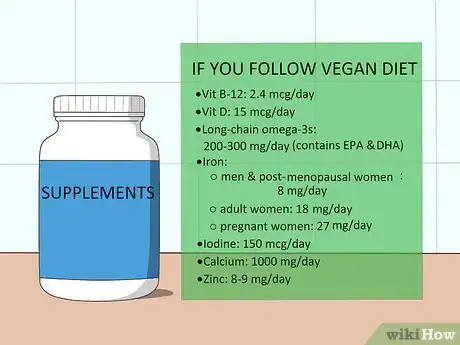
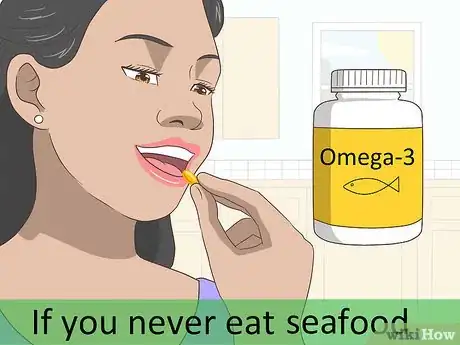
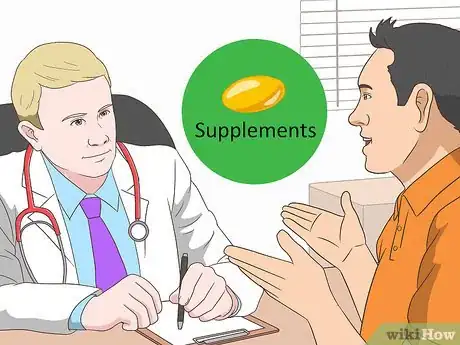

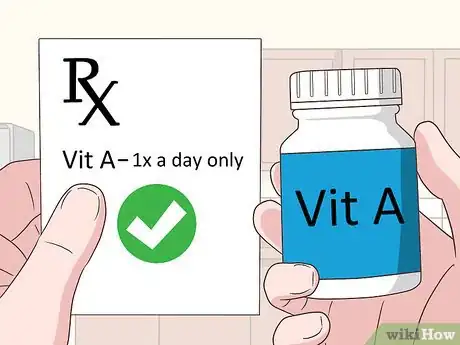
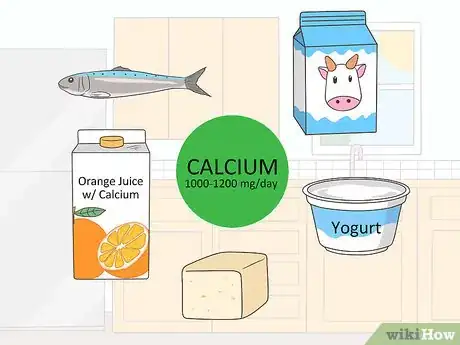
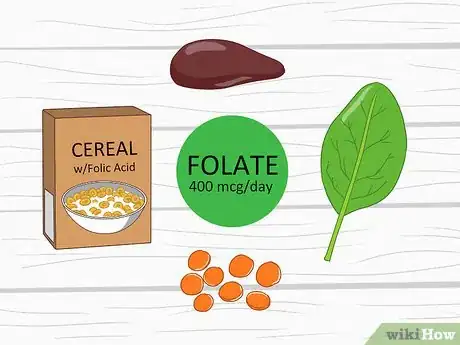
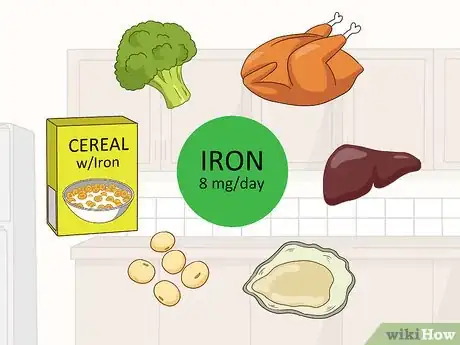
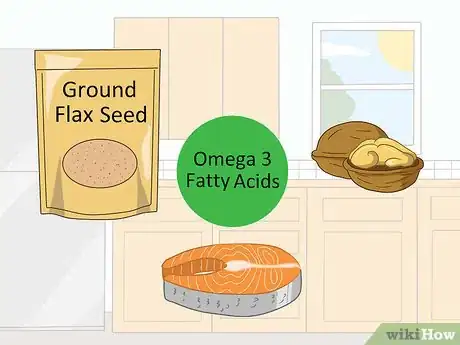
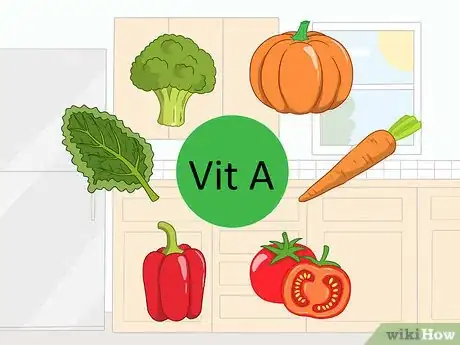
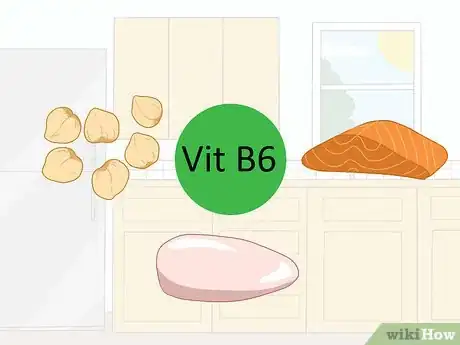
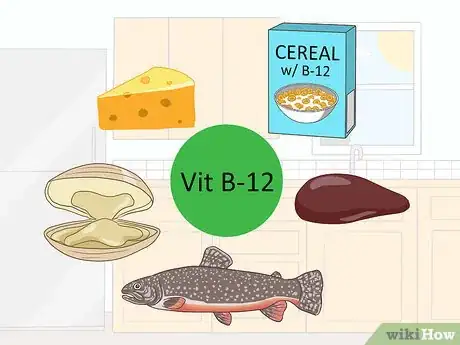
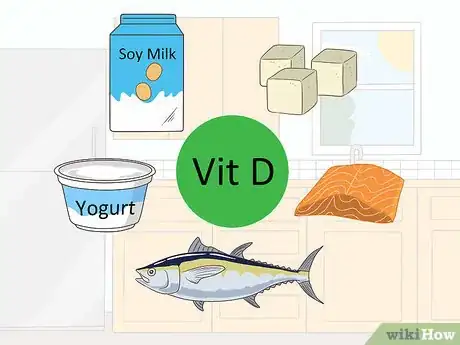
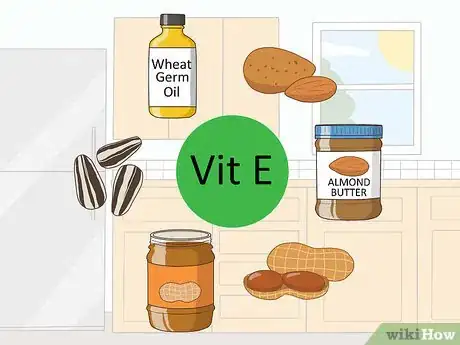
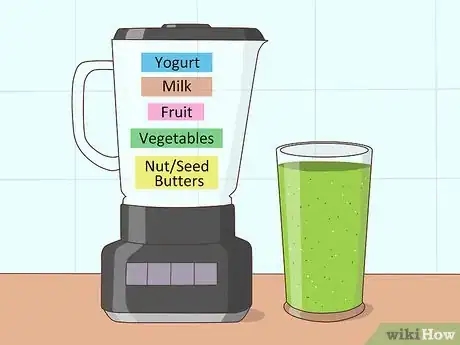

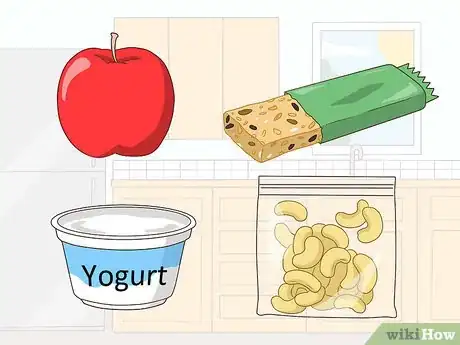
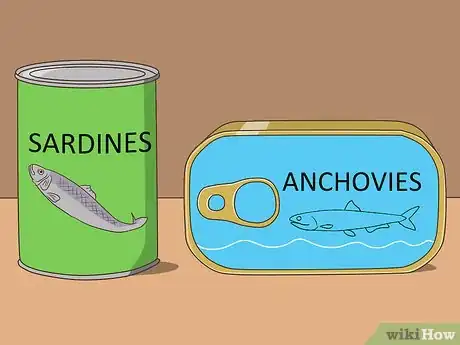
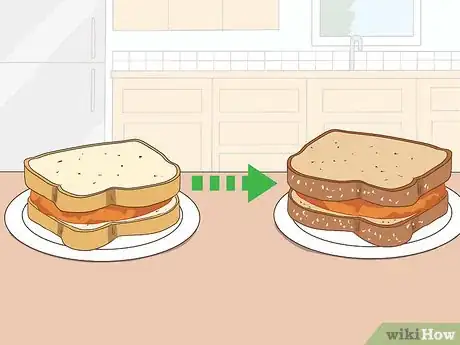
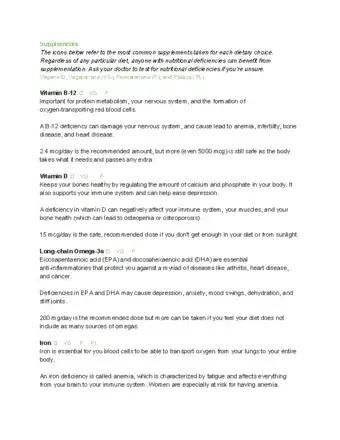
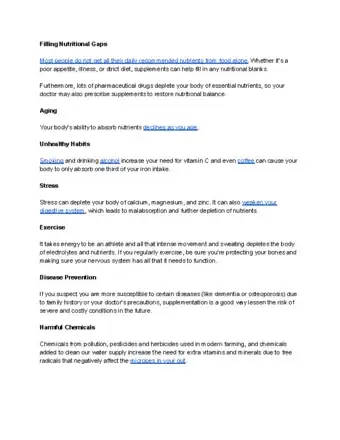
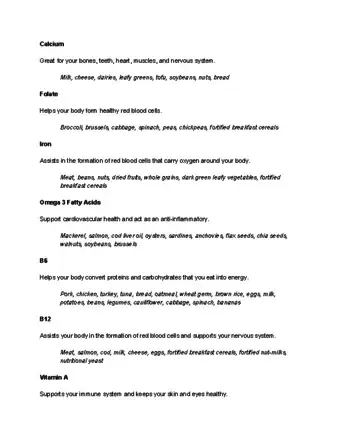
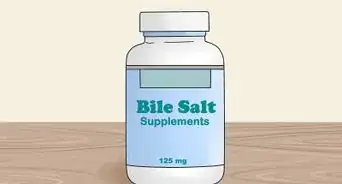
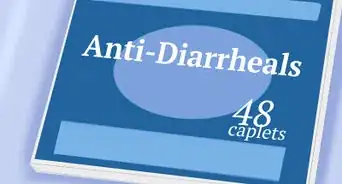
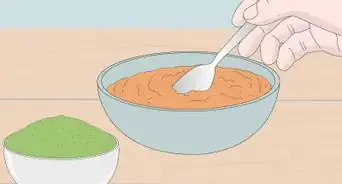
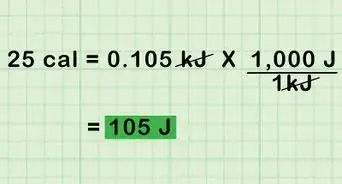


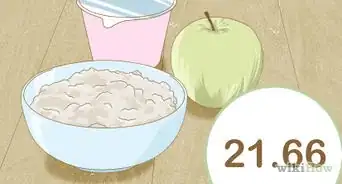
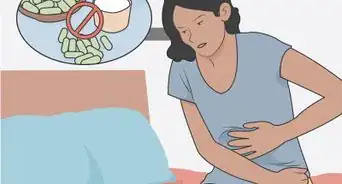
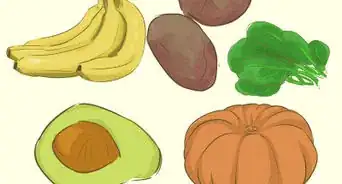










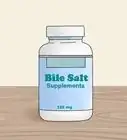
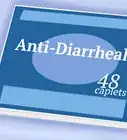





































Medical Disclaimer
The content of this article is not intended to be a substitute for professional medical advice, examination, diagnosis, or treatment. You should always contact your doctor or other qualified healthcare professional before starting, changing, or stopping any kind of health treatment.
Read More...